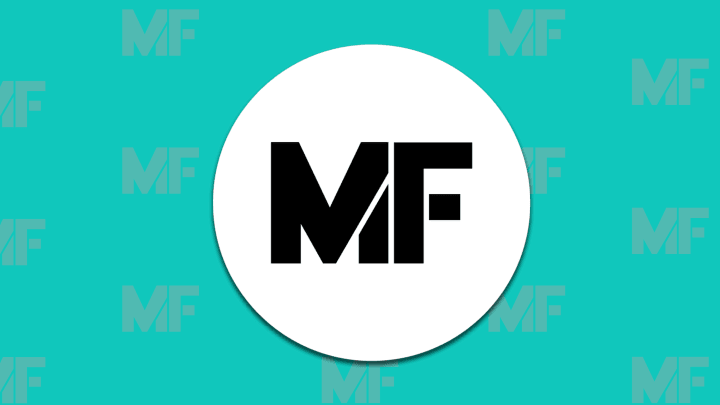If someone invents a language and people start to use it, who owns it? Last year Paramount and CBS filed a lawsuit against a production company preparing to make a crowdfunded Star Trek fan film called Axanar, claiming copyright on various elements of the franchise universe, including the Klingon language. According to The Hollywood Reporter,
“After the Star Trek rights holders filed their complaint, the defendant production company demanded of the franchise's copyrighted elements. In response, Paramount and CBS listed a lot, but what drew most attention was claimed entitlement to the Klingon language. The defendant then reached back to a 19th century Supreme Court opinion for the proposition that Klingon is not copyrightable as a useful system.”
The plaintiffs responded with a huff of disdain, claiming “this argument is absurd since a language is only useful if it can be used to communicate with people, and there are no Klingons with whom to communicate."
They should have known better than to mess with the Klingons. Do they not already know that a Klingon warrior never backs down from a direct challenge? Of course, there are no actual Klingons, but there are indeed actual Klingon speakers, and the Language Creation Society got a lawyer to draft an amicus brief laying out the 100 percent serious and completely valid arguments for denying any copyright claims on the Klingon language. Here are nine of the best things about it.
1. THEY CITE PRECEDENTS.
For example, in Arica Inst., Inc. v. Palmer, 970 F.2d 1067, 1075 (2d Cir. 1992) it was ruled that “author who disavowed inventing enneagrams publicly cannot claim invention inconsistently to improve a litigation position.” Since the conceit of the original Klingon dictionary was that information about language came from an actual Klingon prisoner named Maltz, how can they now turn around and deny that statement to improve their case against these filmmakers?
2. THEY STRATEGICALLY BRANDISH KLINGON PROVERBS TO MAKE THEIR POINTS.
For example, a section describing how a community of users have for years been studying, conversing, and creating in Klingon ends this way: “as the Klingon proverb says, wa' Dol nIvDaq matay'DI' maQap. ('We succeed together in a greater whole.')”
3. THEY INSULT THE PLAINTIFFS IN APPROPRIATE STAR TREK TERMS.
After explaining how after decades of being able to use the language for various purposes—sometimes with explicit licensing agreements—the community didn’t think copyright would be suddenly asserted one day, the brief reads, “It would not take a Vulcan to explain their logic—even the Pakleds would know that nobody can 'own' a language.”
4. THEY WARN PARAMOUNT OF THE FUTILITY OF THEIR MOTION IN KLINGON TERMS.
If they wish to go ahead with the claim of infringement, “by opening this door, Plaintiffs will learn rut neH 'oH vIta'Qo' Qob law' yu' jang. ('Sometimes the only thing more dangerous than a question is an answer.')”
5. BECAUSE KLINGON LACKS A WORD FOR INTELLECTUAL PROPERTY, THEY COIN ONE.
It’s yab bang chu, or “mind property law.” The very fact that they can do this helps make the case that Klingon is an algorithm, or system of creation, and thus cannot be copyrighted.
6. THEY QUOTE THE DUDE IN KLINGON.
To emphasize a point about how a claim of exclusive ownership would destroy “an entire body of thought,” they turn to The Dude from The Big Lebowski, saying not Qam ghu'vam, loD! (“This will not stand, man!”)
7. THEY LIST THE MANY WAYS IN WHICH PEOPLE DO USE KLINGON.
With exhibits for proof:
Plaintiffs attempt to downplay the significance of their claim of ownership over the Klingon language by arguing that “a language is only useful if it can be used to communicate with people, and there are no Klingons with whom to communicate.” (ECF 31 at 16.) First, this is a non-sequitur; a process or system need not be “useful” in order to preclude copyright protection, and Plaintiffs provide no authority to the contrary. But more importantly, this is an insulting assertion. Many humans speak Klingon. The annual qep’a’ involves singing and storytelling in Klingon. (See Exhibit 6.) People get married in Klingon. (See Exhibit 10.) Linguist d’Armond Speers even spent three years teaching his infant son to speak Klingon. (See Tara Bannow, “Local company creates Klingon dictionary,” MINNESOTA DAILY (Nov. 17, 2009), attached as Exhibit 12.)
8. THEY ILLUSTRATE THE UNIQUE GRAMMATICAL STRUCTURE OF THE LANGUAGE WITH A SESAME STREET SONG.
You see the difference between English and Klingon if note that “Sunny day, chasing the clouds away” translates to “Day of the daytime star, the clouds are filled with dread and forced to flee.”
9. THEY DROP THE MIC IN KLINGON.
The brief ends with the word Qapla’, which means "success" in English.
The brief was drafted by Marc Randazza. You can read the whole thing here.
